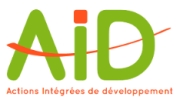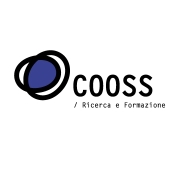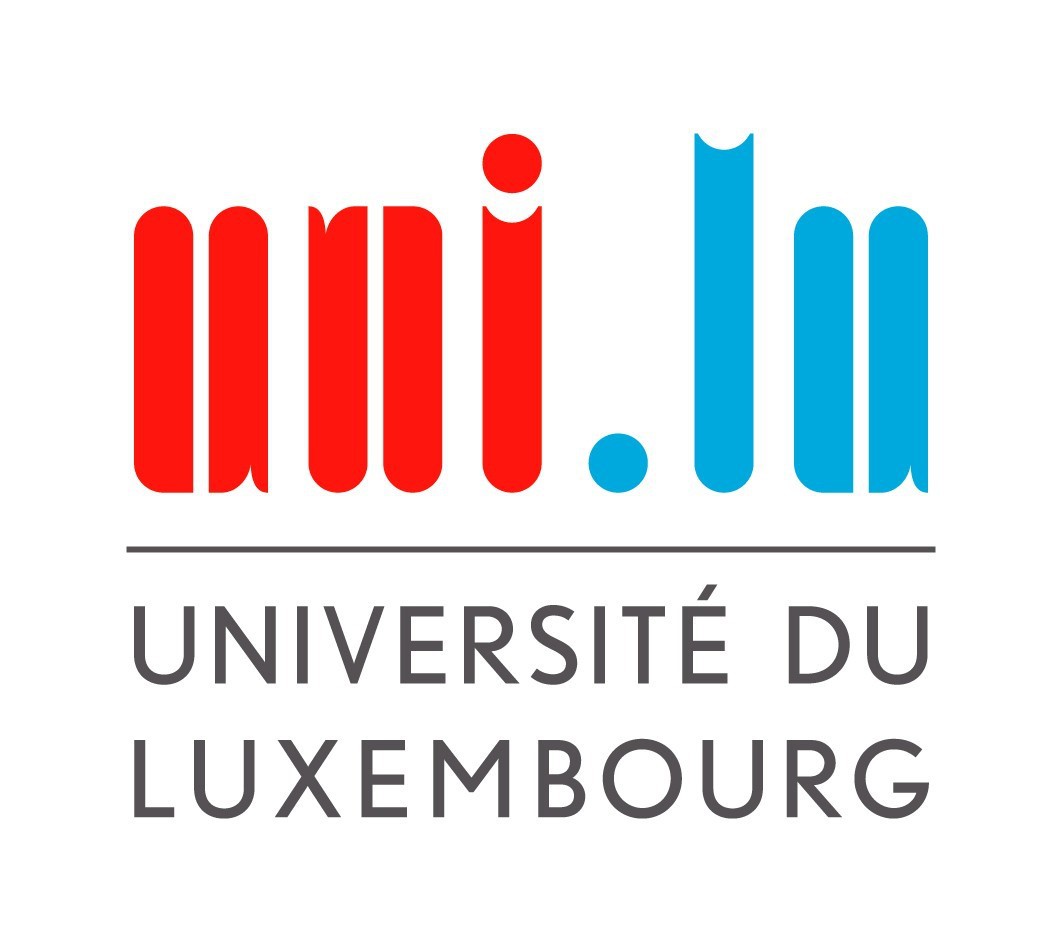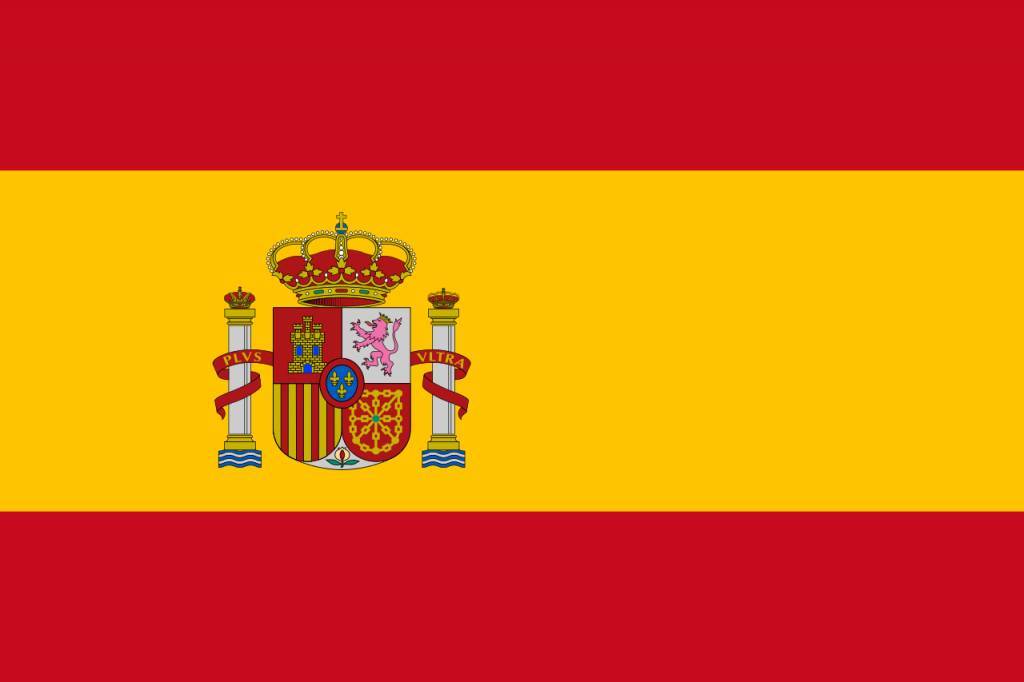The Next Step4-SFC project
All sectors of activity, players in training and socio-professional integration agree on the relevance of “behavioral know-how” in a professional situation – commonly called “soft skills” in learning pathways. The impact of the health crisis has brutally reshaped our world of work. Everyone had to reinvent themselves, demonstrate adaptation and responsiveness. This insecure context, which has forced us to withdraw into ourselves, has also engendered, as a reaction, an increased need for networking, cooperation and social contact, and this even more strongly for people with fewer opportunities. such as low-skilled job seekers and adult learners far removed from employment. It changed learning and highlighted the importance of continuing education and access to distance learning for all.
Project display
Integrating and recognizing behavioral know-how in training and socio-professional integration courses.
CONTEXT
All these new emerging needs have been taken into account to continue the work on behavioral skills undertaken in our previous Erasmus+ projects "OPC-SFC", "Step4-SFC" and to provide operational responses by promoting interdisciplinarity, inclusion for those involved in training, socio-professional integration and for job seekers who will also be able to promote and have their non-technical skills recognized through hybrid courses, whether face-to-face or remotely.
In these courses, the idea is to integrate all the resources as well as the new developments of the Next Step4 project.
EXPECTED RESULTS :
- SFC / Soft Skills Lab
- Recognition and open badges
- Online training systems on recognition via open badges
- Online CFS Awareness Devices for Learners
As a reminder, the partnership has developed these intellectual products to meet the needs of trainers, on the basis of a inventory and recommendations of all partners.
The objective of the project is to offer various, practical and operational responses to trainers who wish to train and have tools to:
- the awareness and awareness of trainees (individual interview, awareness module, etc.)
- communication on the importance of soft skills (video clips, interactive presentations, etc.)
- the implementation of follow-up, development and remediation educational activities.
Particular importance will be given to the pooling of both human and material resources, to collective recognition, to reflexivity as a key skill and to the establishment of an ecosystem.
It will materialize with the creation of an SFC Lab: a third place of collective intelligence (multi-operators, multi-disciplinary) to build answers to issues related to soft skills/SFC in a professional context.
You will find equipment and educational resources that will make it possible to develop responses related to the discovery, practice, training, support and recognition of soft skills/SFC.
It will allow to:
- link a maximum of human and material resources related to the theme of behavioral skills in paths of discovery, experimentation, practice and support.
- co-construct answers to the problems of behavioral know-how / soft skills.
- integrating a new learning dynamic that meets the needs of the job market.
Behavioral skills are recognized as transversal skills, even universal, all business sectors and countries combined.
It is therefore relevant, even necessary, to situate the exchange of practices and the development of tools at a transnational level and to extend it to a mixed training-enterprise partnership. The sector-based approach will be ensured by integrating businesses into the educational reflection, and the Portuguese partner will bring an intergenerational dimension and knowledge of small and medium-sized businesses, which will support this global and complementary approach.
This project follows the integration of training for trainers in the programs of partners who denounce the lack of educational tools to work and develop soft skills with their learners.
The idea of the project is therefore, starting from the OPC-SFC methodology, made up of 4 stages, to develop educational activities. It reinforces and operationalizes step 4 of the latter, hence its name.
This construction will be done in collaboration with the trainers of basic training centers and with professionals in connection with work and / or training situations that fall within the following horizontal priorities:
- Improve the acquisition of relevant and high-level basic and transversal skills in a lifelong education and training perspective
- Transparency and recognition of skills and qualifications to facilitate learning, employability and labor mobility
It also responds to the following professional training priority:
- Improving access to training and qualifications for all through CVET
Project-related activities concern the development, testing, adaptation, adoption and implementation of:
- new learning methodologies (based on the OPC-SFC methodology)
- tools and methods for the professionalization and professional development of trainers:
- levers to facilitate the recognition of skills (therefore SFCs in our case) by directing our thoughts towards possible links with existing certifications in terms of technical skills.
Partners
The consortium of partners formed within the framework of this project brings together players in vocational training and education (VET) at all levels (first line, support and guidance services, design and implementation of training, academic world, training of trainers), both public and private.
All develop actions aimed at the sustainable integration of very diverse groups, sometimes very vulnerable and remote from employment.
Forem is the Walloon Office for Vocational Training and Employment.
Its core business: the integration of job seekers into the labor market with a view to sustainable and quality employment, as well as the satisfaction of the needs of employers and their job offers.

Le Forem offers job seekers personalized advice, guidance and information services, as well as validation of skills, support for geographical mobility, specific actions for young people, etc.
Le Forem offers businesses consulting, assistance and information services on employment and training. It guarantees them access to public aid and schemes, advice on human resource management and the dissemination of their job offers.
Le Forem offers all French-speaking citizens of Wallonia training courses enabling them to obtain a qualification that meets the requirements of the labor market. More than 200 training courses are thus offered by Forem, which also guarantees access for all to information on training courses organized by other operators.
Finally, thanks to an extensive network of partners, Forem also plays a coordinating role in the job and training market in Wallonia.
In the STEP4-SFC project, the Forem Training Department carries and coordinates the project. It provides a tool for transfer.
 AID
AID
 COOSS
COOSS
 CRIF
CRIF
 Brussels Training
Brussels Training
 Foundation Esplai
Foundation Esplai
 Recognize
Recognize
 University of Luxembourg
University of Luxembourg
 AID
AID
the AID network (Integrated Development Actions) brings together 32 member associations. It is made up of Work Training Companies (EFT) in Wallonia, Work Training Workshops (AFT) in Brussels, Socio-Professional Integration Organizations (OISP) in Wallonia and Brussels and Companies d'Insertion (EI & ILDE) in Brussels and Wallonia.
AID has expertise insupport for training projects at the pedagogical, financial, technical or human resources levels. It develops, with and on behalf of its members, various educational tools and helps them to operationalize them concretely in their training systems.
AID worked on key skills in different national projects. Thus, as part of the "Transversal Skills" project carried out at the request of the Subregional Committee for Employment and Training in Tournai, support for training centers in these matters has resulted, in particular, in the publication of a workbook, “These skills that make the difference in employment”, intended for trainees in training.
In the project AID is one of the experts, and brings some of the tools to be transferred.
 COOSS
COOSS
Social cooperative created in 1979, COOSS is a private non-profit organization that provides care services, social services, training and educational activities in the Marche region. It now has about 2,500 members/employees.
Engaged in the advancement of the individual, COOSS recognizes the fundamental right of everyone to have a fair quality of life.
For COOSS, each person is a unique individual. This is expressed by the maxim of the cooperative "al centro del nostro Coossmo ci sei TU", "at the center of our Coossmo, there is YOU", in the belief that the particularities of each are a heritage to be protected and to value.
Recognized by the regional government, COOSS is also a VET (Vocational Education and Training) professional education and training actor, which manages and develops VET actions (in initial and continuing training) and adult education.
In the Next Step 4 SFC project, COOSS participates in all actions. The cooperative, active for a long time on key skills, brings its vision of the concepts and their theoretical background.
 CRIF
CRIF
Established in 1984, CRIF Training and Consulting (Research Center for Integration through Training and Counseling) is a training and guidance organization located in Franche-Comté, in Besançon, Gray and Pontarlier. It accompanies towards and in employment.
To fulfill this mission, it acts on several levels:
- in the Regional Public Training Service, by supporting training projects (project validation, refresher training, etc.)
- through actions to combat illiteracy
- through Pôle Emploi services in individual support
- through training for professions in the tertiary sector: pre-qualifying actions and Educational Training Company
- through interventions as an Individual Skills Assessment provider to support professional transitions
- through the training of professionals in the training, employment and integration sector, in particular professionals of Integration through Economic Activity (Employment Advisors and Technical Supervisors, Tutors, etc.).
 Brussels Training
Brussels Training
Brussels Training is the public body responsible for the vocational training of job seekers and French-speaking Brussels workers in the Brussels-Capital Region.
By decree, BRUXELLES TRAINING has a dual mission:
- ORGANIZE vocational training in Brussels
As such, it is a training operator via its own centres. - MANAGE vocational training. As such, it contributes to the regulation of the field of training.
BRUXELLES TRAINING provides, in its 9 centers or through subcontracting, training in many areas of the secondary and tertiary sector (building, logistics, construction, IT, secretarial work, etc.), but also targeted language training for businesses (bf.languages), basic training or pre-training to prepare the trainee for entry into qualifying training (bf.springboard).
 Foundation Esplai
Foundation Esplai
Hope is a foundation created with the aim of promoting social and digital inclusion as well as engaged citizenship. It brings together people and organizations, and carries out projects in collaboration with other local organizations, public administrations and businesses.
It works in the digital inclusion of vulnerable groups as well as in the certification of digital skills with the aim of bridging the digital divide and improving the employability of participants. She works in particular in coding and robotics to develop soft skills in children and young people by promoting vocations.
She also works on social and educational projects based on the service-learning methodology by reaching out to vulnerable young people to develop their relational skills, educate in values and promote volunteering, social entrepreneurship and healthy leisure. Finally, it works in the professional integration of vulnerable young people through high quality technical training.
 Recognize
Recognize
Recognize—Open Recognition Alliance is a non-profit association born following the publication of the Bologna Open Recognition Declaration. Its members have produced the Open Recognition Charter, which is an invitation to all stakeholders involved in Open Badges projects to adopt and support an ethical approach to recognition, particularly in the design and implementation associated socio-technical devices.
While the ideas of open learning and open educational resources grew out of a desire to remove existing barriers to learning, the ideas of open recognition and open badges grew out of a desire to remove barriers. access to recognition by offering everyone the possibility of “finding and taking their place in the world.”
In the project, the Reconnaître association brings its expertise on Open Badges and open recognition, to promote the co-construction of an inclusive community of practice, where everyone can develop and have recognized a reflective and strategic practice of their soft skills. .
https://reconnaitre.openrecognition.org/
 University of Luxembourg
University of Luxembourg
Founded in 2003, theUniversity of Luxembourg is the only public university in the Grand Duchy of Luxembourg. Multilingual, international and centered on research, it also defines itself as a modern institution with a human face. The members of the academic body come from 94 different countries and it brings together around 7000 students from 129 countries spread all over the world. Close to the European institutions and the financial center of Luxembourg, it has three faculties: The Faculty of Science, Technology and Medicine (FSTM), the Faculty of Law, Economics and Finance (FDEF) and the Faculty Humanities, Educational Sciences and Social Sciences (FHSE).
Within the Faculty of Education and Social Sciences, the LLLG Institute (Institute for Lifelong Learning and Guidance) specializes in educational research, training and assessment. LLLG focuses on the study of the processes involved in the various phases of life transitions (i.e. family to school, between grade levels, school to work, job to job, job to job, job to retire, country to country) and professional development.
LLLG is responsible for evaluating the impacts of the NS4SFC project on learners, trainers and support institutions for job seekers.
National contexts and visions
 France
France
 Italy
Italy
 Spain
Spain
 Belgium
Belgium
 Luxemburg
Luxemburg
 France
France
In France, there is more and more question of the evaluation of professional behavior
In France, there is more and more question of the evaluation of professional behavior, whether during annual interviews in companies, in continuing education, where we work on the professional posture, and even, recently, in temporary work companies with the creation of a "Professional behavior certificate".
We therefore agree today that it is a central theme in the management of human resources in companies, but also in professional integration.
What still raises questions today is how to approach this theme without undermining the individual personality. This question is framed by the labor code and is the fight in particular of the trade unions (a few cases appeared recently in the courts). In view of this situation, this European project on “Behavioral Know-How” therefore takes on its full meaning in France.
As a player in professional integration, the CRIF cannot ignore this dimension, but it is essential to deal with it professionally, that is to say with all possible objectivity, respecting the individual and with a single objective: to promote the "employability" of its audiences.
Recognition participates in the construction of identity; and it is through the construction of a professional identity that individuals develop a sense of competence and a sense of control, which are essential for embarking on a journey of developing their skills throughout life. The recognition of behavioral know-how is therefore an issue for the development of the power to act of individuals, which is expressed in the relationship with others, in collaboration within a group, a community . The Recognize association and its members, present today in many French regions, are working to ensure that this non-formal form of recognition is accessible to everyone, and incorporates public rights mechanisms.
 Italy
Italy
In Italy, the concept of behavioral know-how in a professional situation is not mentioned by the systems and systems of qualifying training
In Italy, the concept of behavioral know-how in a professional situation is not mentioned by the qualifying training systems and mechanisms. Therefore, at the national level, no development and evaluation strategy has been defined.
The closest concepts to SFCs are:
- them " transversal skills ", which are generic and not specific to a profession; among them are communication skills, the ability to solve problems, etc.
- them " key skills " which refer to a particular profession; they can often also be considered or identified as technical
- them " know how " Where “know how” which represent skills and knowledge of an operational nature, to carry out work-related activities.
Vocational training is managed at the regional level. For most qualifications, the Marche Region has not defined specific training programs. The training agencies, of which COOSS is a part, are therefore quite free to construct their training projects, which are ultimately validated by the mandated regional or provincial body.
The discourse is different for the professional profiles of the SOCIO-HEALTH OPERATOR and the FAMILY ASSISTANT, which COOSS has chosen to study and analyze the SFCs, on the one hand, to experiment and validate the educational tools, on the other hand. . Indeed, these two profiles have already been translated at the regional level, by a training reference system, in terms of knowledge, skills and competences to be acquired.
This is where the challenge lies for COOSS, to succeed, despite these legislative obligations and this fixed framework, in implementing an articulated and structured system for the development of Behavioral Know-How for these two professions.
For COOSS and the Human Services Industry, the quality of the relationship between operator and user is essential. The SFCs can therefore become a strategic lever to reinforce the efficiency of the services., integrating the technical and non-technical skills of workers.
The OPC-SFC project is the ideal context to identify, experiment and evaluate these fundamental skills which make, and this is particularly true for the care professions, the difference in employment.
 Spain
Spain
Also called “soft skills”, soft skills refer to the interpersonal and social skills that allow us to establish effective relationships with others. Increasingly appreciated in the social and professional environment and innate, they can be developed and improved through training and practice from an early age. These are skills such as effective communication, empathy, conflict resolution and the ability to work in a team, among others.
According to a report by the Spanish Public Employment Service (SEPE), these skills are increasingly in demand in the workplace, highlighting that most employers value them more than technical skills. The report underlines that they can constitute a key element of differentiation between candidates in the search for a job.
On the other hand, the pandemic has given a boost to telecommuting and remote working, which has reinforced the importance of skills such as effective communication, adaptability and time management, which are critical to successful remote work.
In Spain, more and more schools recognize the importance of developing soft skills in students. Currently, work is being done to include these skills in the curriculum and specific curricula are being developed for teaching them.
The Ministry of Education and Vocational Training has published the “Digital Competence Framework for Teachers Report”, which includes “soft skills” in the digital competences of teachers. In addition, these skills are incorporated into learning guides and teacher training.
There are also specific programs in some Autonomous Communities that aim to develop soft skills in students. For example, the Community of Madrid has developed a “Service-Learning” program which aims to foster the development of social and emotional skills in students.
In summary, although much remains to be done, Spain is making progress in integrating soft skills into education, recognizing their importance in the integral development of students and their relevance for their future working lives.
 Belgium
Belgium
In French-speaking Belgium, without having the tools to do so, training and guidance operators have always been aware of the importance and added value of soft skills.
In French-speaking Belgium, without however having the tools to do so, training and guidance operators have always been aware of the importance and added value of going beyond technical skills and giving their public in integration the non-technical skills that allow their integration into sustainable employment and make the difference in employment.
Skills interfere and impose themselves. The growing internationalization of economies affects the world of work, bringing about rapid and frequent change, the introduction of new technologies and new ways of organizing businesses. Employees must both upgrade their specific professional skills and acquire generic skills that enable them to adapt to change.
The skills are therefore mentioned in the job profiles with sometimes different terms to designate the same concept. Professional activity has undergone structural changes: technical, economic and social. These changes lead to a transformation of work organization and requirements in terms of content, tools, methods and social forms of work. This therefore has consequences for the qualification and skills of workers and their initial and continuing vocational training.
It appears, for some time now, that the importance accorded to skills in companies or in the public sector of employment is gradually going beyond the construction of a frame of reference centered on the core business to take into consideration more and more often soft skills.
Indeed, given the labor market, diplomas and certifications, although still constituting an essential reference, are no longer sufficient to differentiate and decide between candidates. Recruiters are not satisfied with training and diplomas, but they also seek to gauge the ability to live in a community, the sense of concreteness, the faculty of initiative or the ability to complete a job as well as knowledge. -Do Behavioral. Should we turn a blind eye to this development?
Frequently, a discourse putting soft skills at the center of the decision, whether in terms of recruitment, evaluation, career management or professional orientation, is heard.
However, it is necessary to identify all the characteristics and components of soft skills because they are more and more often considered as a predictor of professional success. [1].
In its Opinion No. 99 of February 22, 2008, the Council for Education and Training (Belgium – French Community Wallonia-Brussels) recommends that vocational training, among other things, "organize the mobilization of these skills and make them operational, without them becoming elements of social control and social selection of workers. In the same Opinion, the Council proposes, to get out of the “shambles” of concepts and definitions related to the notion of competence, the lighting of Professor Bunk's model.
the Bruges press release, from 2010, and its rapid translation into regional plans have prompted the Belgian partners to create tools to "give citizens the means to act", to " adapt to an ever-changing environment " and of " manage change » [2].
It is from this moment that the concept of behavioral know-how (SFC) was born. Behavioral know-how, like all know-how, can be worked on, acquired in training, from the moment it is contextualized in a work situation. As such, he may be observed throughout the training process.
In the constant concern to develop tools for identifying and managing skills and to offer these tools to as many people as possible, each of the operators has implemented tools for the observation and development of Behavioral Know-How throughout training (frames of reference, observation grids, integration into training repositories, etc.) proposed for transfer within the framework of the OPC-SFC project.
The work of each, the actions carried out and the tools implemented have demonstrated that these non-technical skills, taken as a whole, make a difference in employment. The hypothesis formed by the Belgian partnership is that these skills can be worked on from orientation and then in qualifying training, and that it is possible to encourage and observe progress among their audiences in training or socio-professional integration.
 Luxemburg
Luxemburg




